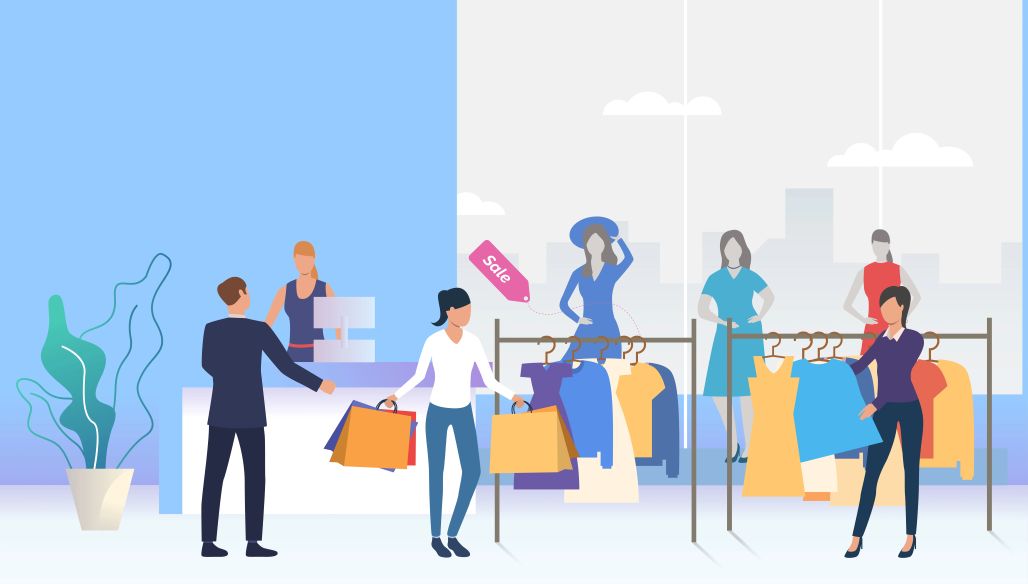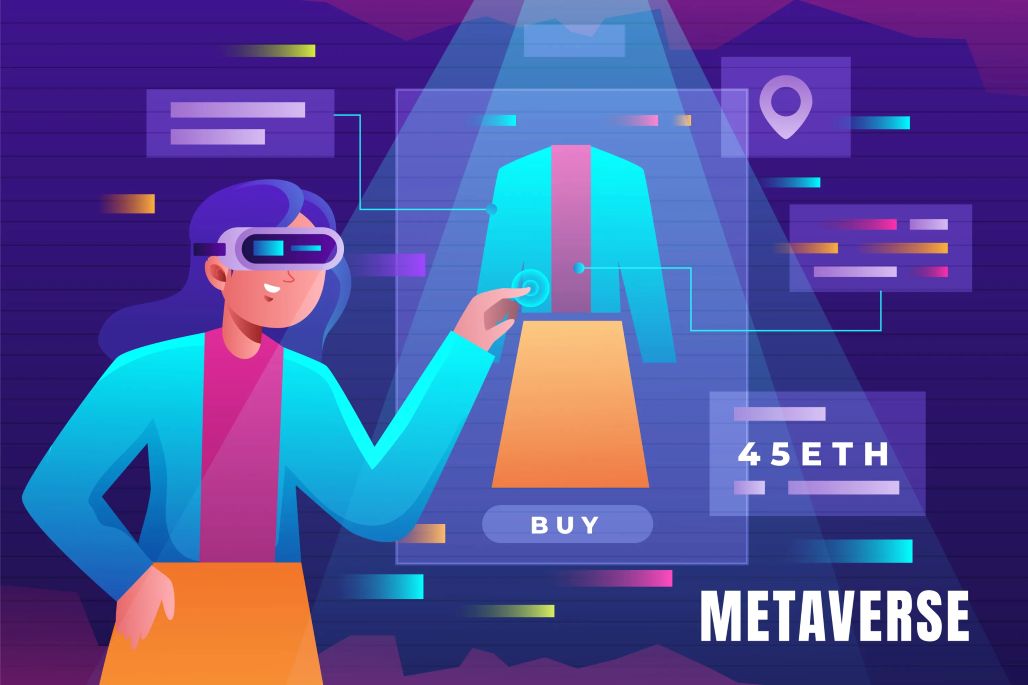In the fast-paced world of retail, where customer expectations evolve constantly and market trends shift rapidly, effective employee training is crucial. Retail employees are the frontline ambassadors of your brand, and their skills, knowledge, and engagement directly affect customer satisfaction, sales, and overall business success. Today, organizations are increasingly turning to digital solutions, with LMS for retail training emerging as a key tool to transform how employees learn, adapt, and perform on the job. Platforms like Calibr offer AI-powered personalized learning, making it easier than ever to deliver consistent, scalable, and engaging training programs across multiple stores and regions.
Are you ready to transform retail training with Calibr?
Learn more or Contact us today to get started

Understanding LMS for Retail Training
An LMS for retail provides a centralized hub for training materials, ensuring consistent learning experiences for store associates, managers, and other frontline staff. Unlike traditional training methods, these systems provide a centralized hub for courses, assessments, and training materials, ensuring that every retail employee—from store associates to managers—receives consistent instruction regardless of location.A retail LMS provides this consistency while also enabling flexibility in how content is delivered.
Key benefits of using an LMS for retail include:
Centralized Learning: All training content is in one place, making updates and distribution simple.
Flexible Access: Employees can learn anytime, anywhere, on desktop or mobile devices.
Tracking & Analytics: Real-time insights help managers monitor learning progress and identify skill gaps.
Scalable Training: Easily onboard new hires or roll out new product training across multiple stores efficiently.
Retail organizations leveraging platforms like Calibr Learn or using content from Calibr Content Hub can create personalized learning paths, adaptive courses, and gamified experiences that increase engagement and knowledge retention.
The Importance of Retail Employee Training

Investing in retail employee training is critical for both operational efficiency and business growth. Every retail store employee, whether part-time associate or store manager, benefits from standardized training modules delivered through an LMS Here’s why:
Enhanced Customer Experience
Well-trained retail employees can deliver personalized service, answer product queries confidently, and resolve issues effectively. This results in higher customer satisfaction, stronger loyalty, and positive word-of-mouth. A retail LMS ensures these service standards are maintained across all stores. An LMS for retail ensures employees have the skills and knowledge to consistently provide excellent service, even during busy periods.
Increased Sales Performance
Employees who are knowledgeable about products, promotions, and upselling techniques are better equipped to influence customer purchases. Structured training through a retail training platform allows staff to master sales techniques and product knowledge in a systematic way, boosting conversion rates and revenue.
Compliance and Standardization
Retail businesses must adhere to a variety of industry regulations, safety guidelines, and company policies. An LMS for retail ensures that every employee receives standardized learning modules, minimizing compliance risks and ensuring that best practices are followed consistently across all stores.
Employee Retention
Continuous learning opportunities contribute to employee satisfaction and engagement. Staff who feel supported in their professional growth are more likely to stay long-term, reducing turnover and the associated costs of recruitment and training. Platforms like Calibr Craft allow managers to create engaging content tailored to employee roles, further enhancing the learning experience.
Adaptability and Future-Ready Workforce
Retail is a sector that evolves constantly, with new technologies, product lines, and customer expectations emerging regularly. An LMS for retail helps employees stay up-to-date with these changes, ensuring they are confident, capable, and ready to adapt to new challenges.
Key Features of Retail LMS Software
Choosing the right LMS for retail training involves evaluating platforms based on their ability to meet the specific needs of retail employees and store operations. Modern retail LMS software like Calibr is designed with features like gamification, real-time analytics, and mobile learning, helping organizations deliver engaging training at scale. Thus, a comprehensive retail LMS should include the following features:
AI-Powered Course Authoring
Modern LMS platforms offer intelligent course creation tools that allow training managers to develop engaging, interactive, and personalized content. Such retail employee training software ensures content is tailored to employee roles and learning needs Platforms like Calibr offer AI-powered authoring which can suggest modules based on employee roles, learning history, or performance gaps, ensuring that training is relevant and impactful.
Collaborative Learning
Retail teams often work in fast-paced environments where sharing knowledge is crucial. Collaborative learning features, such as discussion forums, group projects, and peer assessments, enable employees to learn from each other, exchange tips, and solve challenges together, fostering a culture of teamwork and continuous improvement.
Mobile Learning
Retail employees frequently have unpredictable schedules and may not always have access to a desktop computer. Mobile learning ensures that training materials are accessible anytime, anywhere, on smartphones or tablets. This flexibility allows employees to complete microlearning modules during breaks, commutes, or downtime, keeping learning convenient and consistent.
Personalized Learning Paths
Not all employees have the same responsibilities or skill gaps. Personalized learning paths allow training programs to be tailored for individual employees, ensuring that each person receives the right content at the right time. For example, a store manager may focus on leadership and inventory management, while a sales associate receives product knowledge and customer service modules.
Real-Time Analytics
An effective LMS provides dashboards and reporting tools to monitor employee progress, engagement levels, and assessment scores in real time. This data helps managers identify skill gaps, recognize high performers, and make informed decisions about future training needs, ensuring that learning outcomes align with business goals.
Gamification
Gamified elements, such as points, badges, leaderboards, and interactive challenges, make training more engaging and enjoyable for employees. In retail, gamification can motivate staff to complete modules faster, reinforce learning, and encourage friendly competition among stores or teams.
SCORM Compliance
SCORM compliance ensures that training content is compatible with existing LMS systems and industry standards. This allows organizations to integrate third-party courses or migrate content seamlessly between platforms, maintaining consistency and avoiding technical issues.
An effective LMS for retail training bridges these features with practical outcomes, helping employees apply what they learn directly on the sales floor. Thus, by combining these features, modern retail workforce training tools empower employees to perform better in fast-paced environments.
All these powerful features — from AI-powered authoring to gamification and real-time analytics — are available in Calibr, making it a one-stop solution for retail training.
Benefits of Implementing an LMS in Retail

Implementing LMS retail solutions like Calibr brings tangible advantages for both employees and organizations.
Scalability
Retail chains often operate across multiple locations, making consistent training a challenge. An LMS allows organizations to onboard new employees efficiently and roll out new training programs across all stores simultaneously. Whether it’s seasonal hiring or introducing new product lines, a scalable LMS ensures every employee receives the same high-quality training experience. With LMS retail systems, companies can streamline onboarding and updates more effectively.
Consistency
With a centralized LMS, all employees can access consistent content and complete learning effectively, eliminating discrepancies in knowledge and approach. This consistency is vital in retail, where customer experience depends on uniform service quality, product knowledge, and operational standards.
Cost-Effectiveness
Traditional training methods, such as classroom sessions, workshops, or travel-based programs, can be expensive and time-consuming. An LMS reduces costs by digitizing content delivery, minimizing the need for printed materials, and allowing employees to learn without disrupting store operations.Investing in retail LMS software further reduces costs by digitizing learning at scale.
Flexibility
Retail staff often work irregular hours, making scheduled classroom training impractical. LMS platforms provide flexibility by allowing employees to access learning content at their convenience. This self-paced approach ensures that all employees, regardless of their shift or location, can complete training effectively.
Data-Driven Decisions
By leveraging the analytics and reporting capabilities of an LMS, retail managers can track training completion, assessment scores, and engagement patterns. These insights help organizations refine training programs, address knowledge gaps, and ensure that learning initiatives directly support business objectives.
Enhanced Employee Performance
Employees who undergo structured, continuous training are better prepared to handle customer interactions, manage inventory, and execute sales strategies. When delivered through a modern retail training platform, these programs boost efficiency and confidence in day-to-day operations. This translates into higher productivity, better customer experiences, and improved overall store performance. Thus, by leveraging retail employee training software, organizations can further boost employee performance and confidence on the sales floor
Improved Compliance and Risk Management
Retail operations often involve safety protocols, regulatory compliance, and corporate policies. An LMS ensures that every employee receives standardized compliance training, reducing operational risks and maintaining adherence to regulations.
By adopting LMS retail solutions, organizations can ensure uniform training across multiple store locations while reducing costs and improving employee efficiency. Calibr makes this transformation seamless, offering retailers a complete solution to scale, personalize, and optimize training across their workforce.
For more information on the specific advantages of using an LMS in your retail operations, read our full blog on Top Benefits of LMS for Retail Employee Training Learn more by visiting our website or Contact us today to get started
Choosing the Best Retail LMS
Selecting the right LMS for your retail organization means evaluating platforms carefully and choosing the best retail LMS that matches your business goals and employee needs. Consider factors such as ease of use, integration capabilities with existing systems, and the ability to support various content formats. Platforms like Calibr Learn offer AI-powered personalized learning experiences, while Calibr Craft provides robust content creation tools, and Calibr Content Hub serves as a centralized learning resource library.
Real-World Impact of Retail LMS
The implementation of LMS in retail has shown tangible results:
Increased Sales: Organizations investing in retail training have reported a 57% higher effectiveness in sales compared to competitors.
Return on Investment: Effective retail training programs have demonstrated a 353% return on investment.
Employee Retention: 45% of employees are more likely to stay in their roles if they receive more training opportunities.
Overcoming Challenges in Retail Training
While LMS for retail training offers significant benefits, implementing these systems comes with certain challenges that retailers need to address effectively:
Resistance to Change
Many retail employees are accustomed to traditional, in-person training methods and may initially resist digital learning platforms. Overcoming this requires clear communication about the benefits of the LMS, demonstrating how it makes learning easier and more flexible, and providing incentives for engagement.
Content Relevance
Retail trends, products, and customer expectations evolve rapidly. Training content must be updated regularly to remain relevant and effective. Outdated courses can lead to knowledge gaps and reduced employee confidence. Retail organizations should schedule periodic content reviews and ensure training aligns with current business goals.
Technological Barriers
Not all retail employees are tech-savvy, and some may struggle with navigating an LMS. Providing onboarding sessions, user guides, and continuous support can help bridge this gap. Platforms with intuitive interfaces, mobile accessibility, and interactive features can significantly reduce these barriers.
By proactively addressing these challenges—through comprehensive onboarding, ongoing support, and regular content updates—retailers can maximize the impact of their LMS and foster a culture of continuous learning.
Modern LMS retail solutions also address these challenges by combining intuitive design with powerful analytics, making adoption easier for both managers and employees
Future Trends in Retail LMS

The retail sector is constantly evolving, and so are the tools used for employee training. As technology advances, LMS for retail training will continue to evolve, offering smarter tools for learning and development. The future of retail employee training through LMS platforms like Calibr will likely include several innovative trends:
Integration of Virtual Reality (VR)
VR technology allows employees to experience realistic retail scenarios in a safe, controlled environment. From handling customer complaints to managing high-traffic store days, VR simulations provide immersive, hands-on learning experiences that are difficult to replicate in traditional training sessions.
Advanced Analytics
Next-generation LMS platforms are leveraging advanced analytics to provide deeper insights into employee learning behaviors and performance. Retail managers can track engagement, identify skill gaps, and measure training effectiveness more accurately, enabling data-driven decision-making.
Microlearning
Microlearning breaks down complex topics into short, focused modules that employees can complete in minutes. This approach is particularly suited for retail staff, who may have limited time during busy shifts. Microlearning promotes better retention and allows employees to learn at their own pace.
Social Learning
Social learning fosters peer-to-peer interaction and collaboration.Through discussion boards, group challenges, and shared resources, employees can learn from one another, exchange best practices, and reinforce training in real-world scenarios.In the future, LMS retail platforms will increasingly combine social features with analytics to enhance engagement.
Conclusion
Implementing an LMS for retail training has become essential in today’s competitive retail landscape. A well-structured LMS enhances employee performance, standardizes knowledge across multiple locations, improves customer satisfaction, and drives overall business success.
Platforms like Calibr Learn, Calibr Craft, and Calibr Content Hub provide comprehensive solutions for retail organizations. From AI-powered personalized learning and interactive content creation to centralized resource libraries, these tools help deliver consistent, engaging, and scalable training experiences.
Retailers that embrace LMS technology can ensure their employees are not only skilled and confident but also adaptable to the ever-changing demands of the retail industry.Choosing the right retail LMS is therefore critical to future-proofing the workforce.
For more information on how Calibr’s suite of tools can transform your retail training programs, explore our website now
Sign up for a 14 days free trail or contact us and schedule a demo to get started
By investing in an LMS, retail organizations can future-proof their workforce, ensuring employees are equipped to deliver exceptional service and drive measurable business results.


